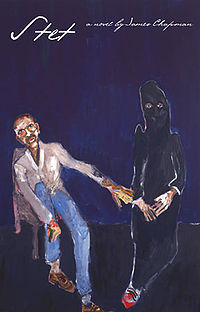

; it was published by Fugue State Press
in 2006.
Plot summary
Stet tells the life story of a visionary Soviet filmmaker named Stet who lives through Stalin's repressions, manages to direct his first feature film, but ends up in a prison camp for various offenses against the bureaucracy.
The novel is narrated in a "Russian" voice, by an ostensible third-person narrator who is nevertheless full of opinions and bitter aphorisms. Despite his third-person status, the narrator seems to be a major character in the book.
The tone of the book is black humor
, and often entirely pessimistic, as it delineates the difficulties of living as an artist who does not accept or worry about the judgments of his surrounding world. Yet the character of the filmmaker Stet, to whom aesthetic ecstasy remains available throughout his trials, seems to give the reader an alternative to the pessimism of the narrator.
Themes
- StetStetStet is a Latin word used by proofreaders and editors to instruct the typesetter or writer to disregard a change the editor or proofreader had previously marked....
is a proofreader's mark which means "let it stand," i.e. "ignore this correction." In the context of the novel, the character's name seems to be a plea that the world cease to "correct" him, and allow him his way along his incorrect path.
- The filmmaker depicted here sometimes bears a strong resemblance to Sergei Parajanov, a Soviet-era filmmaker who was repeatedly imprisoned for his work.
External links
- Publisher's page for Stet
- A review of Stet
- Stet review by Travis JeppesenTravis JeppesenTravis Jeppesen , Florida is an American novelist, poet, and art critic.He grew up in Charlotte, North Carolina and moved to New York City at the age of 17. He received his B.A. from The New School, where he studied literature and philosophy...

